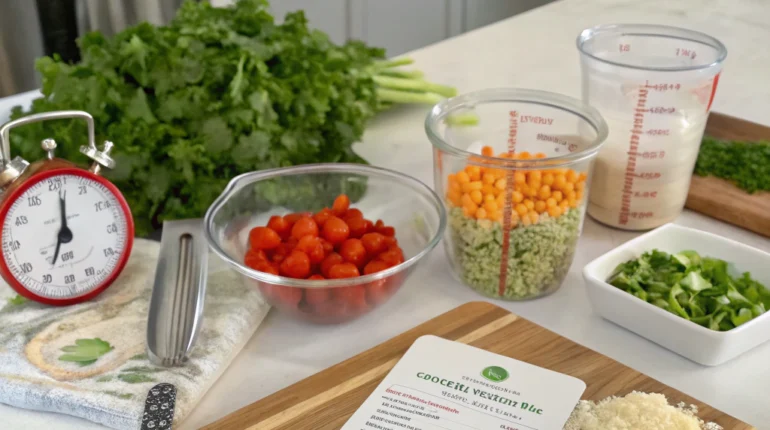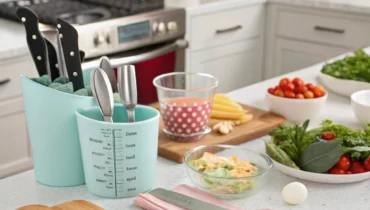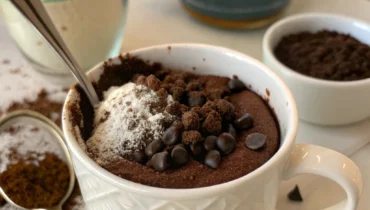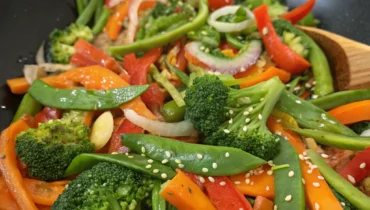7 Time-Saving Kitchen Tips to Make Cooking Easier Every Day!

Posted September 6, 2025 by: Admin
Healthier Alternatives for the Recipe
These kitchen efficiency tips can be adapted to support various dietary needs:
For low-carb or keto diets, focus batch cooking sessions on proteins and non-starchy vegetables. Prepare cauliflower rice in bulk and freeze in portion-sized containers as a quick grain alternative.
Plant-based eaters can prep versatile bases like lentils, beans, and tofu in various marinades to create quick meal variety. Roast large batches of seasonal vegetables to mix and match throughout the week.
Those watching sodium can pre-make herb and spice blends without salt, making it easier to flavor foods quickly without reaching for the salt shaker.
Serving Suggestions
These time-saving strategies work best when integrated into your lifestyle gradually. Start by implementing just one tip per week until it becomes habitual.
For families with children, involve kids in age-appropriate prep tasks. This not only distributes the workload but teaches valuable life skills. Even toddlers can help sort ingredients or tear lettuce.
Consider hosting a “prep party” with friends where everyone brings ingredients to prepare several meals together. The social aspect makes batch cooking more enjoyable, and you can exchange recipes and techniques.
Common Mistakes to Avoid
- Overambitious meal planning – Start with planning just 3-4 days at a time until you establish the habit
- Neglecting to inventory before shopping – Check what you already have to avoid duplicate purchases
- Choosing complicated recipes for weeknights – Save intricate cooking for weekends when time pressure is lower
- Storing prepped ingredients improperly – Invest in quality containers and learn proper storage techniques for maximum freshness
- Trying to multitask too many things – Focus on 2-3 simultaneous tasks to avoid mistakes and accidents
Storing Tips for the Recipe
Proper storage is crucial for making your time-saving efforts worthwhile. Label all prepped ingredients and meals with contents and date using masking tape or reusable labels.
Most chopped vegetables will stay fresh in airtight containers for 3-5 days. Exceptions include cut avocados and apples, which brown quickly unless treated with lemon juice.
Cooked grains and proteins typically remain good for 3-4 days refrigerated. For longer storage, freeze in portion-sized containers for up to 3 months. Always cool foods completely before refrigerating to prevent bacterial growth.
Herbs can be chopped and frozen in ice cube trays with a bit of water or oil for easy flavor additions to future meals. This preserves their flavor far better than refrigeration.
Conclusion
Implementing these seven time-saving kitchen tips can transform your relationship with cooking from a daily chore to an efficient, even enjoyable part of your routine. Start with the strategies that address your biggest pain points, whether that’s meal planning, prep work, or cleanup.
Remember that efficiency in the kitchen is a skill that improves with practice. Each time you cook using these techniques, you’ll discover new ways to streamline your process even further.
What’s your biggest time-waster in the kitchen? Try implementing one of these tips this week and share your experience in the comments! Your fellow readers might have additional suggestions to help you save even more time while creating delicious, home-cooked meals.
















